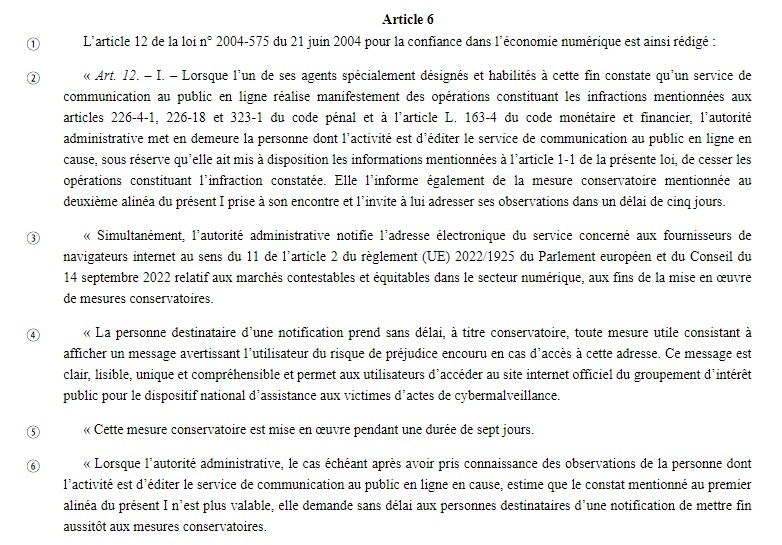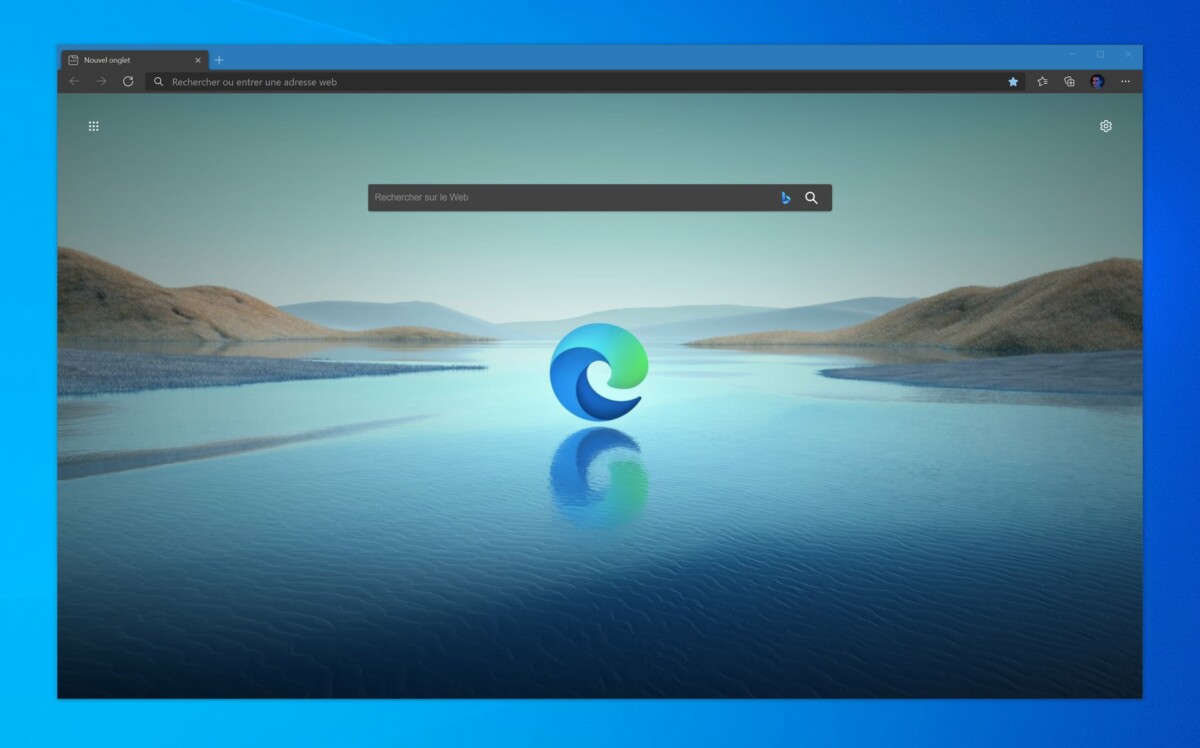A bill tabled by the government and currently being studied in the Senate provides for the creation of domain name blocking lists integrated into browsers. The objective for the State: to block fraud or piracy sites.
The media TorrentFreak is sounding the alarm about the Bill aimed at securing and regulating the digital space. The latter was tabled in the Senate on June 27 and should soon be studied: discussions in public session are scheduled for early July after the tabling of amendments. In question: the creation of a blocking list of domain names imposed on web browsers.
Block websites directly from web browsers
Arcom is increasingly reactive in blocking sites in France, ordering ISPs to remove access to certain piracy sites, for example. But these blockages can easily be circumvented, by changing its DNS or by using a VPN. To counter this, the government would like to create blocking lists for web browsers.
It is within this framework that there is partly the law aimed at securing and regulating the digital space. In addition to the numerical majority at 15, the government wishes for example to prevent minors from accessing pornographic content.

It is article 6 which provides for the creation of a blocking list. In the event that a fraudulent site is found, Arcom may send a message to the “internet browser providers» : it is Chrome, Firefox, Safari, Edge, etc. Navigators who must without delay “display a message warning the user of the risk of harm incurred by accessing this address.” The law provides that this message must be “clear, readable, unique and understandable and allows users to access the official websites of the public interest group for the national assistance system for victims of cyber-malicious actsand this for seven days.

Paragraph 2 of this article goes further: if the site remains fraudulent, Arcom may order web browsers to “to immediately take any useful measure intended to prevent access to the address of this service for a maximum period of three months.“A blockage which can of course be extended, for a maximum of six months, then another six months if necessary.
At first glance, it will not necessarily be the browsers that will have to perform the blocking: Arcom may designate “which provider is responsible for preventing access to the address of this service, depending on the injunction issued and the nature of the measure envisaged.»
The fear of state abuse in blocking websites
Mozilla, the foundation that publishes Firefox, has split a long blog post to denounce this government takeover of web browsers and sites. Although she recallsa well-intentioned moveMozilla considers this bill to be “dangerous to fight against online fraud.Mozilla goes even further by talking about the creation of a “dystopian technical ability“, writing that a”Such a move would overturn decades of established standards for content moderation and provide authoritarian governments with a playbook that would easily deny the existence of censorship circumvention tools.»

Mozilla, like other players, indicates that this law would be disproportionate to the issues of the fight against fraud. In fact, it is not so much the current government that is denounced, but its successors, if they are authoritarian. This would set a precedent that “would make it much more difficult for mariners to reject such requests from other governments.» The foundation accepts no liability for any intervention between users and hosting providers or Internet access providers.
Want to join a community of enthusiasts? Our Discord welcomes you, it’s a place of mutual aid and passion around tech.
